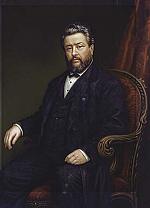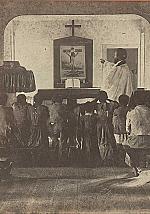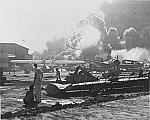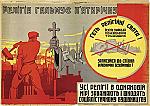The golden age of hymns
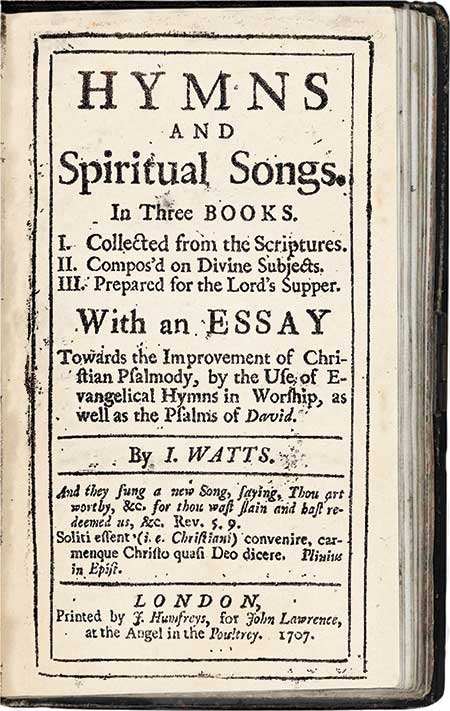
[Isaac Watts, Hymns and Spiritual Songs, 1707—Public domain, journeys.dartmouth.edu]
The writers of these “modern” hymns brought vibrant musical expression to the English-speaking church and made our issue #31’s hall of fame.
Isaac Watts (1674–1748)
Ye monsters of the bubbling deep
Your Master’s praises spout;
Up from the sands ye coddlings
[cod] peep,
and wag your tails about.
Though this verse was probably a parody, such were church psalms when Isaac Watts was young. When he complained his father challenged him to write something better. The following week Isaac presented his first hymn to the church and received an enthusiastic response, beginning his career as the “Father of English Hymnody.”
At Watts’s birth his father was in prison for Nonconformist sympathies. Young Isaac showed genius, however, and several wealthy townspeople offered to pay for his university education in Anglican ministry. Watts refused and at 16 went to London to study at a leading Nonconformist academy. In 1702 he became pastor of an influential Independent church in London. He served there for the rest of his life.
In 1707 Watts published Hymns and Spiritual Songs containing 210 hymns, one of the first English hymnals. “Joy to the World,” “O God, Our Help in Ages Past,” “When I Survey the Wondrous Cross,” and “I Sing the Almighty Power of God” are just a few of his 600 hymns. He moved church singing into a new era.
After battling a decades-long illness, Watts died in 1748. Samuel Johnson observed: “Few men have left behind such purity of character or such monuments of laborious piety.”
William Cowper (1731–1800)
William Cowper’s poetic achievements are remarkable given that mental illness plagued him all his life. Son of a royal chaplain, Cowper worked as a lawyer. At age 32 he attempted suicide three times. During an 18-month asylum stay, he was converted while reading Romans.
After his release Cowper eventually met John Newton and moved to Olney. He grew spiritually and healed there. Newton urged Cowper to serve Olney’s poor and also convinced him to write hymns for the parish’s prayer meetings. The result was Olney Hymns (1779), which contains 348 hymns—68 by Cowper, who suffered a relapse and was unable to finish his work.
Three of his best-known works are “There Is a Fountain,” “Safely Through Another Week,” and “O for a Closer Walk with God.” Cowper wrote his famous “God Moves in a Mysterious Way” during another dark time around another suicide attempt. Perhaps he wrote his most meaningful works during fits of despair. On his deathbed he stated, “I am not shut out of heaven after all.”
Anne Steele (Theodosia) (1716–1778)
Anne Steele was the eldest daughter of William Steele, Baptist pastor at Broughton, England. Early in life Steele demonstrated a gift for writing. But many misfortunes beset her. Her mother died. In her teens a fall from a horse rendered her permanently disabled. Just hours before their wedding, her fiancé drowned. This final painful incident probably gave rise to one of her best-known hymns, “Father: Whate’er of Earthly Bliss.”
Steele, described as “cultured, pious, and beautiful,” spent most days in the quiet seclusion of her father’s house. She never married. The shock of her father’s death in 1769 aggravated her feeble health. Despite many trials Steele wrote 144 hymns and 34 psalm versions. She published Poems on Subjects Chiefly Devotional in two volumes in 1760 and a third posthumously. Her hymns and poems received wide acceptance. More than a century after her death, it was written that she “stands at the head” of Baptist hymn writers.
James Montgomery (1771–1854)
Montgomery had once studied to be a missionary, attending a Moravian seminary in London. He found poetry, however, more absorbing than his studies. Not long after the sudden death of both parents in the mission field, however, he left school to cultivate his literary gifts. At age 23 he became editor of the weekly Sheffield Register in London, a position he held for 31 years.
Montgomery became an activist, particularly for the abolition of slavery, landing him fines and occasional imprisonments. In 1797 he published a collection of poems written behind bars, Prison Amusements. Montgomery is best remembered for more than 400 hymns, most written after 1807 and published in the 1820s. His famous “Angels from the Realms of Glory,” first appeared as a poem in his newspaper on Christmas Eve of 1816. He published his collection as Montgomery’s Original Hymns. Many hymnologists give him a place after Watts and Wesley.—Vinita Hampton Wright, from CH #31
By Vinita Hampton Wright
[Christian History originally published this article in Christian History Issue #150 in 2024]
Vinita Hampton Wright retired in 2021 from a 32-year career as a book editor and was a frequent early author for CH.Next articles
Founding fathers
An innovative evangelist, a Christ-based preacher, and a pioneer missionary
James E. Johnson, Patricia Stallings Kruppa, Timothy GeorgeSurprised by Christ
Three spirits conquered by Christ
Lyle W. Dorsett, Matt Forster, Kaylena RadcliffRussian Christianity and the revolution: what happened?
The sins of the church came back on its head with a fury
Andrew SorokowskiSupport us
Christian History Institute (CHI) is a non-profit Pennsylvania corporation founded in 1982. Your donations support the continuation of this ministry
Donate



